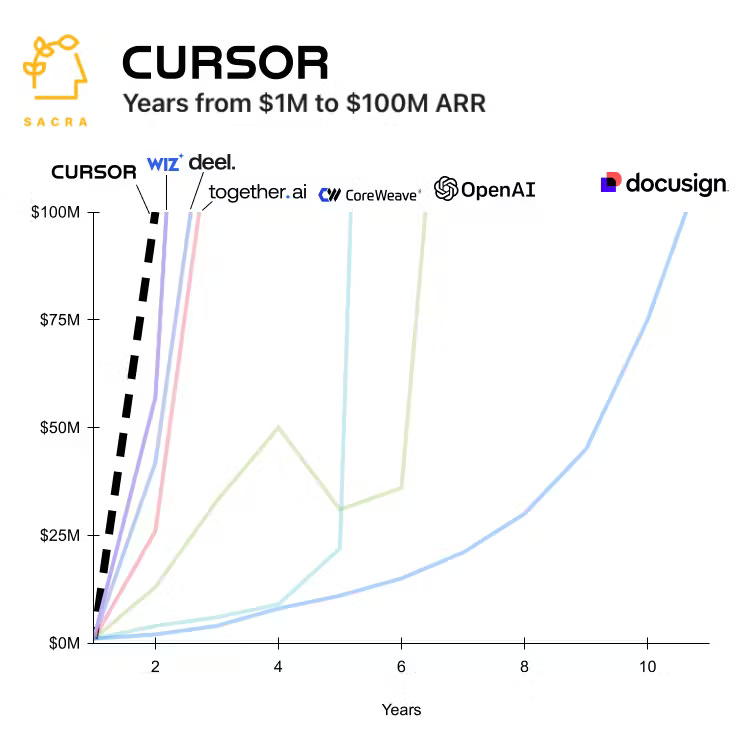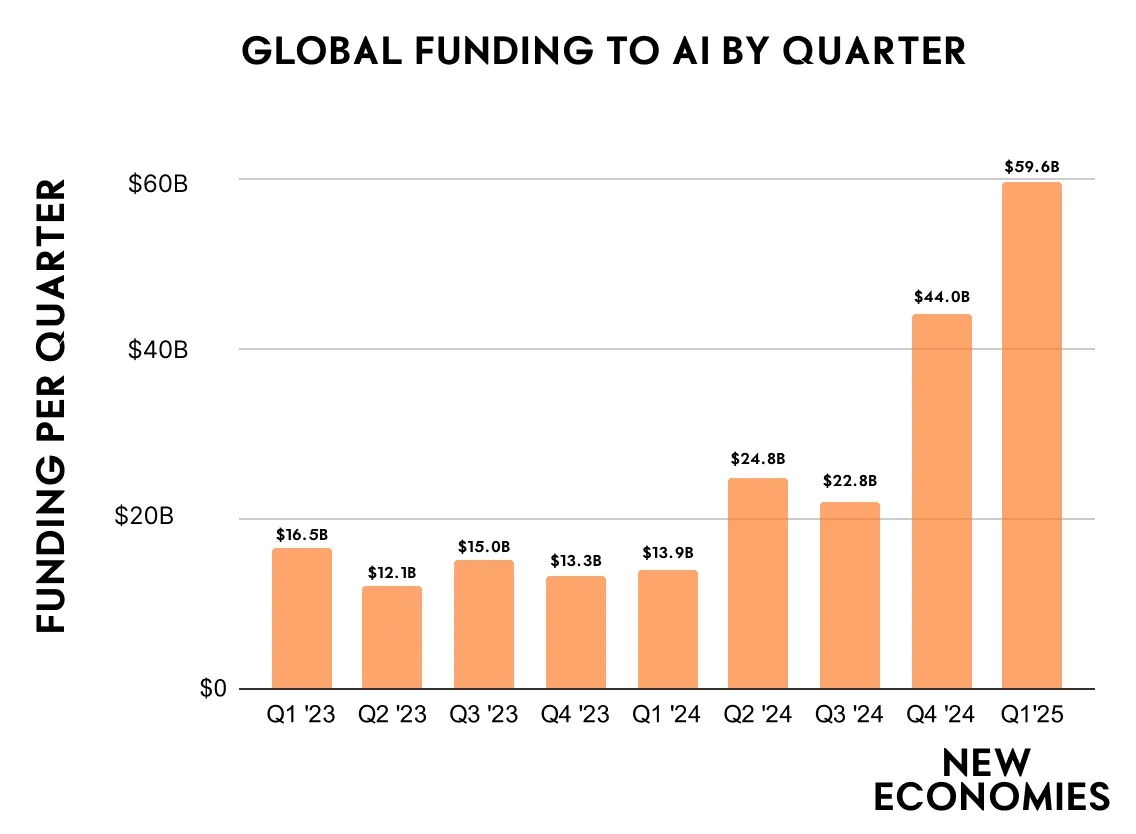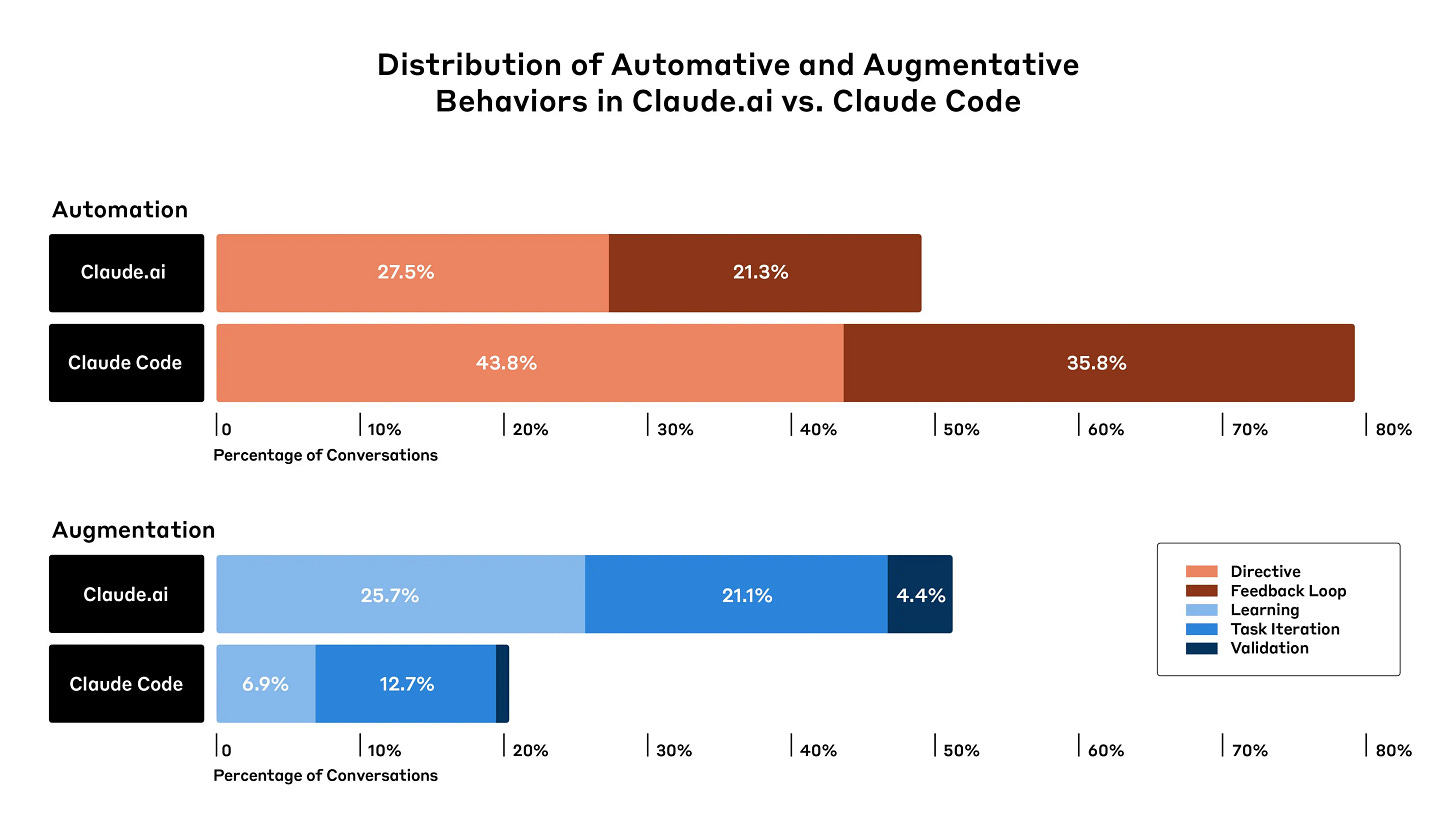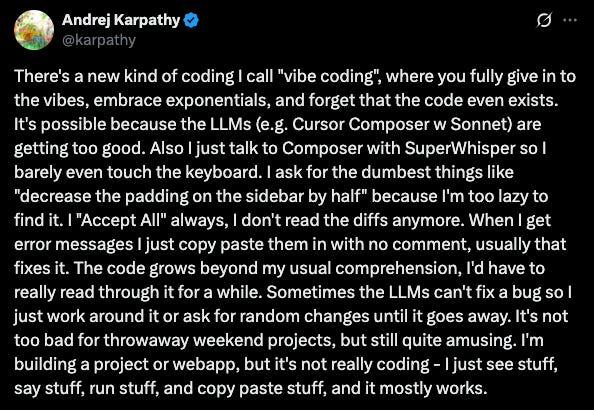It’s a strange time to be a software engineer.
On the one hand, new AI coding tools allow me to do the work of an entire team.
On the other hand, this increased developer productivity has led companies to review team compositions, leading to a job market that is shaky at best.
In fact, the best job opportunities right now are probably with AI startups.
Because the companies that used to run the large software development projects that were the bread and butter of professional developers are now facing some serious economic headwinds.
Just as it is now possible to scale a 10-person company to 100 million dollars ARR like the AI coding tool Cursor has done over the past 12 months, 5-person teams working with AI are slowly chipping away at the bureaucratic masses of large organisations because they can coordinate better and get more work done than old-school layered matrix organisations.

We’re not just talking about coding here, but about every core enterprise function—finance, HR, marketing, sales and so on are all being targeted by hyper ambitious AI and agentic AI startups funded by billions of dollars of venture capital.

Why am I telling you all this?
Because AI coding is changing the dynamics and economics of software engineering.
The economic value of what many of the ~30 million professional software engineers worldwide consider their core activity—writing code—has just plummeted. The main reason a lot of my peers haven’t realised this yet is because of organisational inertia.
Having worked with Cursor for almost twelve months, I’ve witnessed the leaps in AI coding capabilities from simple autocomplete to complete AI software engineers.
We’re not there yet, but if you’re a professional software engineer and you’re not working on your AI, design and people skills, your career could take an unexpected turn for the worse in the near future.
Dev teams working with AI are moving faster. Much faster.
Just compare reading speeds: humans read an average of 200-250 words per minute.
Most current AI models can process more than 10k tokens per second.
This has led to 1.5-2x faster software development cycles in several controlled experiments—meaning teams using these new AI coding tools are getting at least twice as much work done as peers stuck in ye olden ways!
But productivity gains alone don’t cover the full economic impact of these new tools.
They bring with them a completely new way of working—of what software means.
I found this out the hard way when Cursor switched their UI and AI integrations overnight days after the release of Claude 3.7 back in February.
The test-driven development AI coding workflow I’d been using the previous 8 months was no longer effective because they went all-in on agentic AI capabilities.
With full-on agentic software development it becomes much harder to set the context in which the AI models are making changes, and to control the input, output, scope and AI system behaviour because the AI is basically given free rein.
Turns out I’d been using AI to augment an established software engineering practice I’d built up over 10 years. It had been working pretty well up to the point the folks at Anysphere (Cursor’s parent company) decided to go all-in on “agentic” AI automation.
So are the rest of the AI coding tools out there on the market today.
AI is now writing the majority of the code for a lot of folks.

As can be seen in the analysis done by Anthropic above, in Claude Code ~80% of the user interactions are direct code generation, with either the AI writing everything or users collaborating with Claude in feedback loops.
This full-blown automation of software engineering has also opened up a major new frontier: people with no previous technical skills are suddenly able to generate working code with the help of these new AI coding tools.
The rise of the vibe coder
Because while AI coding IDEs (Integrated Development Environments) like Cursor and Windsurf have been making waves among professional software engineers, a number of fast-growing AI coding startups like Lovable and Replit have made it their main mission to enable non-technical folks to generate working software.
This type of AI coding software is often called “agentic”.
It means that LLMs handle most or all of the code changes in the codebase.
The economic impact here could potentially be much bigger than that of speeding up professional software development. It will enable new business processes and models, upending entire sectors and potentially spelling the doom of many a SaaS company.
The engineering novices happily generating their programs are colloquially called “vibe coders” because they guide their AI assistants based on behavioural insights and “vibes”—rather than technical specs or designs.

They’ve grasped the new reality of software engineering in the age of AI intuitively.
Congratulations. You are now a behavioural designer.
Because whether you like it or not, software engineering is not going to be the same.
In the near future, your main task as a professional software engineer will be to work out the design with users and work with AI to realise business and user requirements.
With very few exceptions—programming language and hardware developers and AI researchers among them—the bulk of practical software engineering will evolve around system design, process capture and behavioural testing and validation.
As it should have done all along.
The days of coding for code’s sake look to be behind us.
Software engineering has just become a business function.
This week in AI
Meta has launched a dedicated Meta AI app, providing users a standalone interface for its AI assistant previously integrated within apps like WhatsApp and Instagram. This offers a focused way to access Meta's AI for tasks like brainstorming, searching, and content creation, signaling a deeper push into accessible AI tools. The app aims to make the AI assistant more readily available for everyday personal and potentially professional use.
OpenAI enhanced ChatGPT's web search functionality to deliver improved shopping results directly within the conversation. When users search for products, ChatGPT can now present more structured shopping information, potentially streamlining the research and comparison process for consumers. This update integrates e-commerce deeper into the AI assistant, offering a more convenient way to find and evaluate products online.




What does this mean for the future of programming languages? Will future updates to modern languages be patched with the goal of making it easier for humans to read and write (current objective) or for AI to parse? Will AI have to be retrained every time a target language gets updated?